
Commonly known as “Indian jewelry,” this style is so deeply ingrained into the regional culture that it might seem to be an ancient tradition. But turquoise-in-silver jewelry only originated only in the 1880s through an unlikely combination of cultural, economic and technical influences.
THE BEGINNING
Mexican blacksmiths first taught Native Americans the rudiments of ironworking in the 1840s. Navajos later applied these skills to easily workable silver, fashioning such ornaments as pendants, bracelets, necklaces and disks called “conchos”—named after the Spanish concha, or “shell”—for decorating belts and hatbands.
By the 1870s, silver-working skills had spread to the Hopis and Pueblos, but only a minor craft that served limited tribal markets. But change came rapidly in 1881 when a transcontinental railroad built across northern Arizona and New Mexico carried growing numbers of passengers who were intrigued by “Indian” silver jewelry as the perfect souvenir of their travels. The jewelry market that soon developed offered a rare economic opportunity for Native Americans who had recently been confined to reservations. To enhance the appeal of their silver work they complemented it with what had been the region’s premier gemstone for some 2,000 years—turquoise.
THE TURQUOISE
This story is from the June 2023 edition of Rock&Gem Magazine.
Start your 7-day Magzter GOLD free trial to access thousands of curated premium stories, and 9,000+ magazines and newspapers.
Already a subscriber ? Sign In
This story is from the June 2023 edition of Rock&Gem Magazine.
Start your 7-day Magzter GOLD free trial to access thousands of curated premium stories, and 9,000+ magazines and newspapers.
Already a subscriber? Sign In
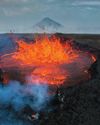
THE BRIGHT SIDE OF VOLCANIC ROCK
As a mineral resource, volcanic rock is decidedly short on glamour.
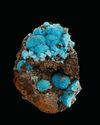
The Other Copper Minerals
12 Lesser-known Collectible Species

MINERAL COLLECTING -AND ROCK & GEM
Evolving Together FOR 54 YEARS
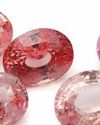
Gemstone Trends
A Look Back at 2024 & What to Expect in 2025
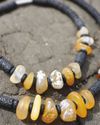
How to Make a GEM BEAD NECKLACE
No Lapidary Experience Needed!
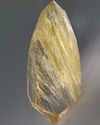
Framing Nature's Art
Faceting Rutilated Quartz for Beginners
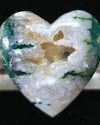
BEDAZZLED BLUE SEAM AGATE
More than several centuries ago, mining was the profession most often seen as befitting of men.
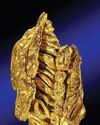
ROCK & GEM FIELD GUIDE:
Spinel is a captivating gemstone with a rich history of being mistaken for gems like ruby and sapphire.
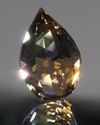
SNAKE SCALE DROP 1.5:1
This Faceting Focus is revisiting the briolette gemstone design because of its popularity with independent and hobby gemstone faceters.

STONE CHIC
How Earth-Inspired Decor Brings Comfort to our Home